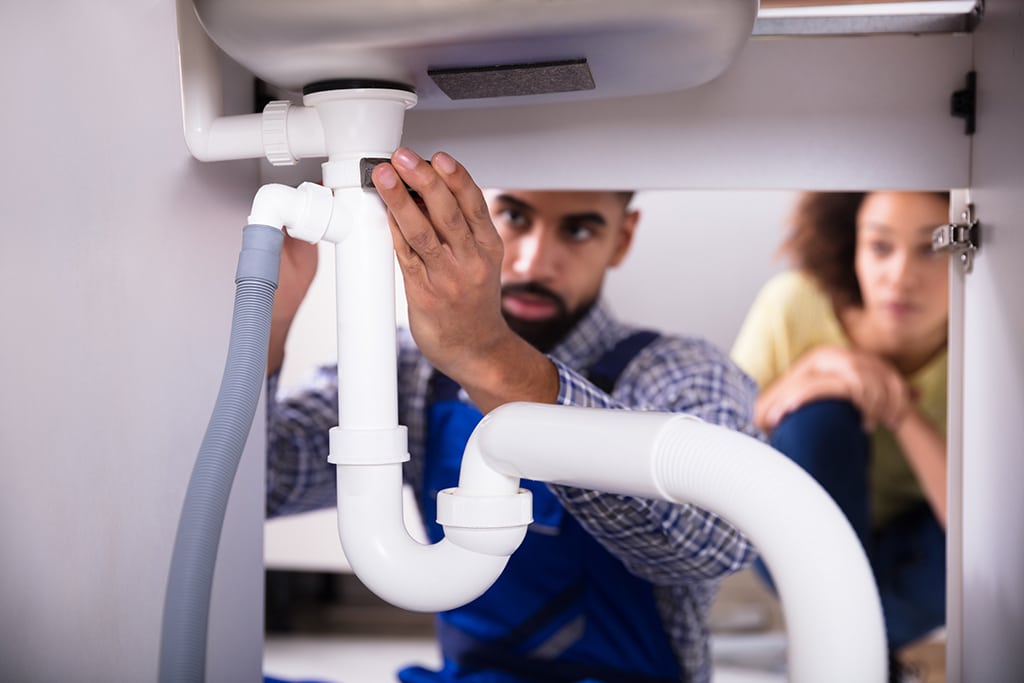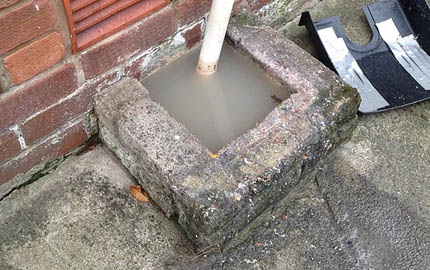Were you interested in information and facts involving What I learned from trying to deal with a clogged drain?

Intro
Handling a blocked drainpipe can be a frustrating experience, interfering with everyday activities and potentially causing damages to your building. Nevertheless, prior to connecting to plumbing experts, there are actions you can require to resolve the problem on your own. In this overview, we'll discover do it yourself remedies and safety nets to deal with an obstructed drainpipe effectively.
Recognizing the Problem
The primary step in resolving an obstructed drain is acknowledging the indications. Slow-moving drainage, gurgling audios, foul odors rising from drains, or water backing up are common indications of a blocked drainpipe. Identifying these indicators early can help avoid better issues.
Common Root Causes Of Obstructed Drains
Understanding the elements that add to drain clogs is crucial for reliable resolution. Common perpetrators consist of hair, soap residue, oil, food particles, and foreign objects like sanitary products or paper towels. Tree roots getting into below ground pipelines can likewise trigger significant clogs.
DIY Solutions
For small clogs, several do it yourself services can be effective. Pouring boiling thin down the drainpipe can help liquify oil and particles. Baking soda and vinegar or a mix of salt and baking soft drink can work as all-natural cleansers. Utilizing a bettor or pipes serpent to dislodge blockages is an additional choice.
Tools and Equipment
Having the right tools handy can make DIY drainpipe cleaning a lot more effective. A bettor is a flexible device for removing clogs in sinks, toilets, and showers. A plumbing snake or auger can reach much deeper blockages, while drainpipe cleaning chemicals can be used meticulously for stubborn clogs.
Safety nets
To prevent future obstructions, taking on safety nets is essential. Set up drainpipe guards or filters to capture hair and debris prior to they get in the pipes. Consistently flush drains pipes with warm water to dissolve grease buildup, and prevent taking care of grease or strong waste away.
When to Call a Professional
While DIY solutions can resolve minor clogs, specific indicators show the requirement for specialist support. Relentless blockages, foul odors in spite of cleaning up efforts, or numerous drains backing up simultaneously are red flags that necessitate skilled treatment.
Choosing the Right Plumbing Solution
When choosing a plumbing service, consider factors such as experience, licensing, and client evaluations. Choose a reliable plumbing professional with a track record of top quality craftsmanship and clear pricing methods.
Expense Considerations
The cost of expert drainpipe cleaning company can vary depending on the severity of the obstruction and the plumber's prices. Request quotes from several providers and ask about any kind of service charges to guarantee transparency and prevent shocks.
Security Precautions
When attempting do it yourself drainpipe cleansing, prioritize security. Use protective handwear covers and eyeglasses to stay clear of contact with damaging chemicals or microorganisms. Never ever mix various drainpipe cleansing products, as this can create hazardous fumes.
Case Studies
Real-life instances show the efficiency of do it yourself services and the value of timely specialist intervention in settling drain obstructions.
Conclusion
By adhering to the pointers laid out in this guide, you can properly take on obstructed drains and avoid future plumbing problems. Whether selecting do it yourself services or seeking professional assistance, prompt activity is key to preserving a healthy pipes system and protecting the stability of your home.
How to Clear a Clogged Drain Yourself (And When to Call In the Professionals)
What Can Clog a Drain
Dirt Skin flakes Hair Grease Soap scum Food Offset pipes Tree roots Small objects Mineral buildup DIY Tricks to Unclog a Drain
You can fix this! Once you have identified the source of the clog (or have a vague idea), you can try one or a combination of these fixes in order to clear your plumbing.
Wire Hanger or Snake
Untangle and clear out hair from a drainpipe with a homemade snake. Use a straightened-out wire hanger with a 90-degree angle hook to locate the clog and drag out any unwanted material.
Remember not to push the clog further down to where the wire hanger cannot reach! If you need to follow up with a plunger, give it a try. Your efforts might be more successful after it’s been wire-snaked.
If you want to get fancy and don’t have a wire hanger to spare, head to the store and pick up a hand-operated drain snake. You can get one for $10-$30. It may save you the hassle, and provide additional length to reach deep into the clogged pipe.
Plunger
A cup plunger has a suction cup attached to a wooden handle. The rubber creates a seal around the drain, and increases the pressure force of the plunger.
Plunge for 30-second increments to loosen the clog. This may need to be repeated over the course of 15-20 minutes. Once plunged, run the water to flush the remaining material out of the drain.
Remember– never use a plunger if you have used a chemical drain cleaner. These chemicals can splash up from the force of the plunger and cause serious injury or burns.
Boiling Water
Hot water can sometimes break up materials into a flushable amount. Dirt, grease, and soap buildup requires heat in order to unstick from surfaces.
Take your kitchen kettle and heat your water to a boil. Once it reaches a rolling boil, pour it directly down the drain into the blockage. Carefully follow with plunging, if necessary.
Don’t worry if this takes more than one try! It can often take multiple kettles and repeated plunging in order to clear a particularly stubborn clog.
Chemical Drain Cleaner
As a last resort, pick up a bottle of chemical drain cleaner. Drain-cleaning chemicals are potent, and not very good for the environment.
You may need to wear protective eyewear in gloves before handling your bottle of chemical drain cleaner. Follow the instructions printed on the bottle, and flush with water as soon as the instructions allow. Do not follow with plunging.
Baking Soda and Vinegar
As a safer alternative to chemical drain cleaner, baking soda and vinegar can create a chemical reaction that clears tough clogs.
Combine one cup of cleaning vinegar with one cup of boiling water, and set aside. Once you have done this, pour half a cup of baking soda down the drain. Give the baking thirty seconds to settle and cover a large portion of the problem drain.
Following the baking soda, pour down your vinegar and hot water solution. Once the vinegar and baking soda combine, the mixture will bubble and fix. Let this reaction fizzle in the drain for about an hour.
After an hour, follow with a kettle’s worth of hot water. The heat and liquid should flush out any remaining material.
When to Call a Plumber
If your DIY attempts haven’t cleared your clog drain, it’s time to call in a professional. It’s not worth losing access to your kitchen sink or high-traffic bathroom. A clog in a vital area can keep you from the things you’d rather be doing, and derail your routine.
Anytime a clog is causing water to spread is a time to call in a plumbing service. What starts out as a little bit of water can quickly grow into serious, expensive water damage.
Additionally, a serious clog can result in burst pipes or serious leaks. Make sure you know when to take it seriously!
https://myguysnow.com/how-to-clear-a-clogged-drain-yourself-and-when-to-call-in-the-professionals/

I stumbled upon that blog entry about How to handle a clogged drain in your home when browsing on the search engines. Are you aware of someone else who is serious about the niche? Feel free to share it. We love reading our article about .
Further Details